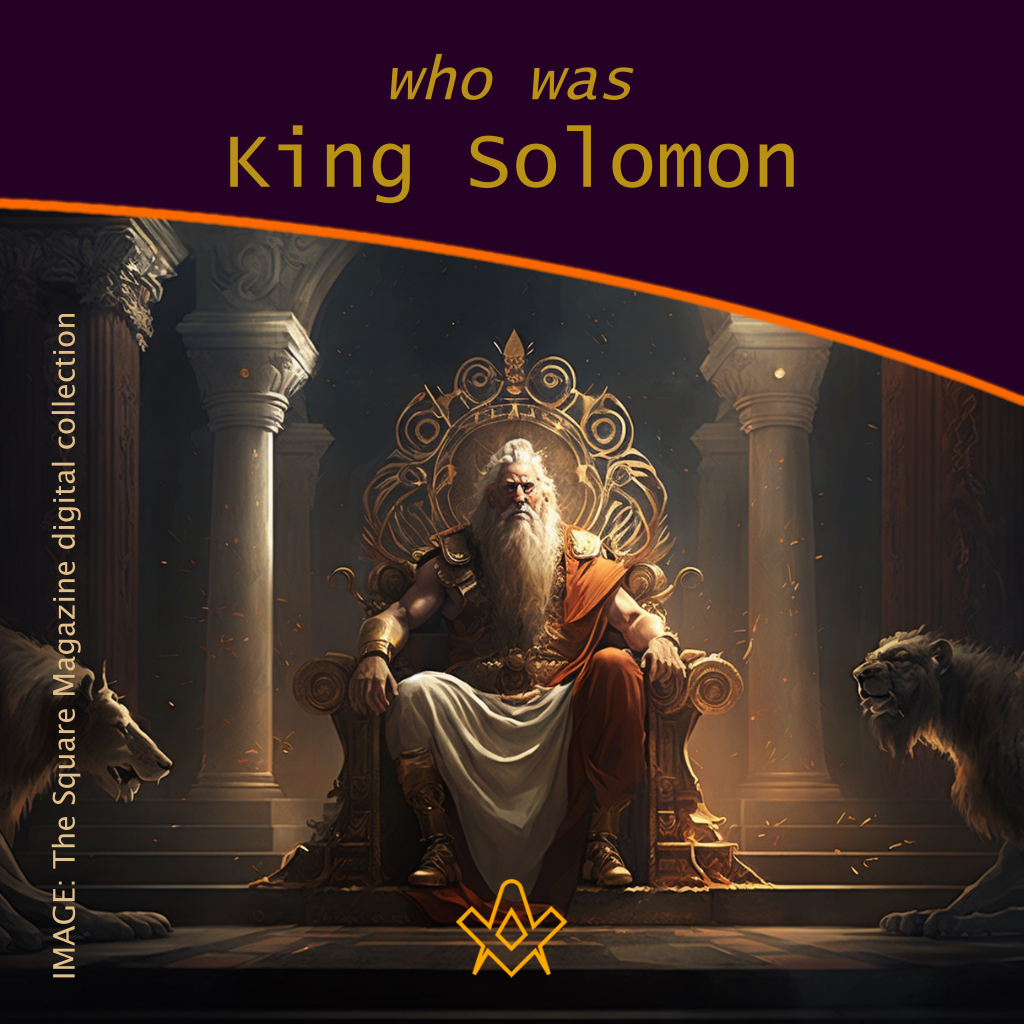King Solomon, a legendary figure in history, stands as a symbol of wisdom, wealth, and justice. His reign, as depicted in the Hebrew Bible, marked a golden era for the ancient Israelites.
He is known for his vast empire, architectural achievements, and diplomatic relations with other nations, but it is his wisdom and the anecdotes surrounding it that continue to captivate the minds of scholars and laypeople alike.
This essay will delve into the life of King Solomon, his contributions to ancient Israel, and the significance of his wisdom in the development of Western thought.
I. Early Life and Ascension to the Throne
Solomon was the son of King David and Bathsheba, and his story is predominantly found in the Hebrew Bible, specifically in the books of 1 Kings and 2 Chronicles.
Born in Jerusalem around the 10th century BCE, Solomon was not the eldest son of David, but his father chose him as the successor to the throne. This decision was based on divine guidance, as the prophet Nathan had prophesied Solomon’s ascension.
When David passed away, Solomon was only about 20 years old, and his reign began with a series of political manoeuvres to secure his position.
He consolidated his rule by forming alliances, marrying foreign princesses, and eliminating rivals.
His early years as king witnessed the establishment of a stable and prosperous kingdom, laying the groundwork for Solomon’s ambitious plans.
II. The Golden Age of Ancient Israel
Under King Solomon’s rule, ancient Israel experienced a golden age of wealth, prosperity, and cultural development.
He expanded the kingdom’s borders, and his empire stretched from the Euphrates River in the north to the Red Sea in the south.
Solomon’s diplomatic relationships with neighbouring nations, such as Egypt, Tyre, and the Queen of Sheba’s land, brought a wealth of resources and knowledge to Israel.
The king’s acumen in trade and his extensive network of alliances allowed him to accumulate vast riches.
One of the most notable architectural achievements during King Solomon’s reign was the construction of the First Temple in Jerusalem.
This temple became the religious center of ancient Israel and housed the Ark of the Covenant.
It was an architectural marvel, adorned with gold, cedarwood from Lebanon, and intricate craftsmanship, reflecting the wealth and prestige of Solomon’s kingdom.
III. The Wisdom of King Solomon
Solomon’s wisdom, however, is what distinguishes him from other biblical and historical figures. The Hebrew Bible attributes his wisdom to a divine gift.
According to the account in 1 Kings, Solomon had a dream in which God offered him a blessing of his choice. Instead of requesting wealth, power, or long life, Solomon asked for wisdom to rule his people justly. God granted his request, endowing him with unparalleled wisdom.
The most famous story demonstrating Solomon’s wisdom is the Judgment of Solomon, in which two women claimed to be the mother of the same baby.
To determine the true mother, Solomon proposed to cut the baby in half and give each woman a portion.
The real mother, horrified by the prospect, offered to relinquish her claim to save the child’s life, and Solomon declared her the true mother.
This story showcases Solomon’s ability to use his wisdom to reach just and fair decisions.
In addition to his wise judgments, King Solomon was also known as a prolific writer and poet. The Hebrew Bible credits him with authoring several books, including Proverbs, Ecclesiastes, and the Song of Songs.
These writings touch upon themes such as morality, human relationships, and the pursuit of knowledge, highlighting the intellectual prowess of the wise king.
IV. Decline and Legacy
Despite Solomon’s immense wisdom, his reign was not without flaws. In his later years, he fell into the trap of excess and indulgence.
He married numerous foreign wives, which not only formed alliances but also introduced idolatry into his kingdom.
Solomon’s harem of wives and concubines led him astray from the worship of the God of Israel, and he began to build temples for the deities of his foreign wives.
This act of religious infidelity angered God, who threatened to tear the kingdom apart as a consequence.
Upon Solomon’s death around 930 BCE, his son Rehoboam succeeded him. However, as prophesied, the kingdom of Israel split into two separate entities: the northern kingdom of Israel and the southern kingdom of Judah.
This division marked the end of the united monarchy and the beginning of a tumultuous period in Israelite history.
Solomon’s legacy, though marred by his later transgressions, remains significant in the history of ancient Israel and Western thought.
His wisdom, as depicted in biblical accounts and echoed in his literary works, has influenced religious and philosophical traditions for millennia.
The tales of his wise judgments have become moral exemplars, offering guidance on ethical and moral dilemmas.
V. Influence on Religious and Philosophical Thought
Solomon’s wisdom transcends the borders of ancient Israel, leaving an indelible mark on religious and philosophical thought.
In Christianity, Solomon’s writings, particularly Proverbs, have provided moral teachings that have been incorporated into the Christian tradition.
His wisdom is also revered in Islam, where he is known as Sulayman and is considered a prophet and wise ruler.
The influence of Solomon’s wisdom extends beyond religious traditions, finding a place in the philosophical discourse.
His exploration of the human condition and the search for meaning, particularly in Ecclesiastes, resonates with the ideas of existentialist philosophers like Søren Kierkegaard and Friedrich Nietzsche.
Additionally, the emphasis on reason, understanding, and justice in his writings aligns with the values of the Enlightenment era.
VI. Conclusion
King Solomon, the legendary monarch of ancient Israel, is a complex figure who embodies wisdom, wealth, and power.
His reign, marked by prosperity and cultural development, left a lasting impact on the region. However, it is his wisdom and the anecdotes surrounding it that continue to captivate and inspire generations.
Solomon’s influence transcends the confines of ancient Israel, shaping religious and philosophical thought across different traditions and historical periods.
The story of King Solomon serves as a cautionary tale, a reminder that even the wisest of rulers can succumb to human flaws.
Yet, it also offers hope, for the wisdom of Solomon has endured throughout the centuries, providing guidance, inspiration, and a window into the human experience.
As we continue to grapple with questions of morality, knowledge, and justice, the legacy of King Solomon remains a beacon of wisdom, reminding us of the importance of cultivating understanding, empathy, and righteous judgment.
Article by: Maarten Moss

Maarten Moss writes regularly as a guest author
Recent Articles: in people series
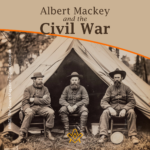 Albert Mackey and the Civil War In the midst of the Civil War's darkness, Dr. Albert G. Mackey, a devoted Freemason, shone a light of brotherhood and peace. Despite the nation's divide, Mackey tirelessly advocated for unity and compassion, embodying Freemasonry's highest ideals—fraternal love and mutual aid. His actions remind us that even in dire times, humanity's best qualities can prevail. |
 Discover the enduring bond of brotherhood at Lodge Dumfries Kilwinning No. 53, Scotland's oldest Masonic lodge with rich historical roots and cultural ties to poet Robert Burns. Experience rituals steeped in tradition, fostering unity and shared values, proving Freemasonry's timeless relevance in bridging cultural and global divides. Embrace the spirit of universal fraternity. |
 Discover the profound connections between John Ruskin's architectural philosophies and Freemasonry's symbolic principles. Delve into a world where craftsmanship, morality, and beauty intertwine, revealing timeless values that transcend individual ideas. Explore how these parallels enrich our understanding of cultural history, urging us to appreciate the deep impacts of architectural symbolism on society’s moral fabric. |
 Discover the incredible tale of the Taxil Hoax: a stunning testament to human gullibility. Unmasked by its mastermind, Leo Taxil, this elaborate scheme shook the world by fusing Freemasonry with diabolical plots, all crafted from lies. Dive into a story of deception that highlights our capacity for belief and the astonishing extents of our credulity. A reminder – question everything. |
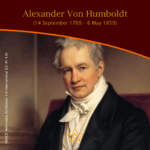 Dive into the extraordinary legacy of Alexander Von Humboldt, an intrepid explorer who defied boundaries to quench his insatiable thirst for knowledge. Embarking on a perilous five-year journey, Humboldt unveiled the Earth’s secrets, laying the foundation for modern conservationism. Discover his timeless impact on science and the spirit of exploration. |
 Voltaire - Freethinker and Freemason Discover the intriguing connection between the Enlightenment genius, Voltaire, and his association with Freemasonry in his final days. Unveil how his initiation into this secretive organization aligned with his lifelong pursuit of knowledge, civil liberties, and societal progress. Explore a captivating facet of Voltaire's remarkable legacy. |
 Robert Burns; But not as we know him A controversial subject but one that needs addressing. Robert Burns has not only been tarred with the presentism brush of being associated with slavery, but more scaldingly accused of being a rapist - a 'Weinstein sex pest' of his age. |
 Richard Parsons, 1st Earl of Rosse Discover the captivating story of Richard Parsons, 1st Earl of Rosse, the First Grand Master of Grand Lodge of Ireland, as we explore his rise to nobility, scandalous affiliations, and lasting legacy in 18th-century Irish history. Uncover the hidden secrets of this influential figure and delve into his intriguing associations and personal life. |
 James Gibbs St. Mary-Le-Strand Church Ricky Pound examines the mysterious carvings etched into the wall at St Mary-Le-Strand Church in the heart of London - are they just stonemasons' marks or a Freemason’s legacy? |
 Freemasonry and the Royal Family In the annals of British history, Freemasonry occupies a distinctive place. This centuries-old society, cloaked in symbolism and known for its masonic rituals, has intertwined with the British Royal Family in fascinating ways. The relationship between Freemasonry and the Royal Family is as complex as it is enduring, a melding of tradition, power, and mystery that continues to captivate the public imagination. |
 A Man Of High Ideals: Kenneth Wilson MA A biography of Kenneth Wilson, his life at Wellington College, and freemasonry in New Zealand by W. Bro Geoff Davies PGD and Rhys Davies |
 In 1786, intending to emigrate to Jamaica, Robert Burns wrote one of his finest poetical pieces – a poignant Farewell to Freemasonry that he wrote for his Brethren of St. James's Lodge, Tarbolton. |
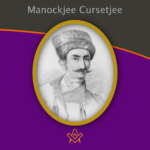 Alex Lishanin explores Mumbai and discovers the story of Lodge Rising Star of Western India and Manockjee Cursetjee – the first Indian to enter the Masonic Brotherhood of India. |
 Aleister Crowley - a very irregular Freemason Aleister Crowley, although made a Freemason in France, held a desire to be recognised as a 'regular' Freemason within the jurisdiction of UGLE – a goal that was never achieved. |
 Sir Joseph Banks – The botanical Freemason Banks was also the first Freemason to set foot in Australia, who was at the time, on a combined Royal Navy & Royal Society scientific expedition to the South Pacific Ocean on HMS Endeavour led by Captain James Cook. |
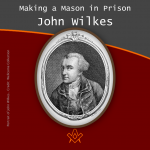 Making a Mason in Prison: the John Wilkes’ exception? |
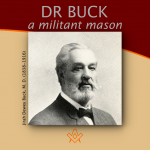 "To be a good man and true" is the first great lesson a man should learn, and over 40 years of being just that in example, Dr Buck won the right to lay down the precept. |
 Elias Ashmole: Masonic Hero or Scheming Chancer? The debate is on! Two eminent Masonic scholars go head to head: Yasha Beresiner proposes that Elias Ashmole was 'a Masonic hero', whereas Robert Lomas posits that Ashmole was a 'scheming chancer'. |
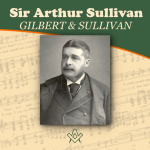 Sir Arthur Sullivan - A Masonic Composer We are all familiar with the comic operas of Gilbert and Sullivan, but did you know Sullivan was a Freemason, lets find out more…. |
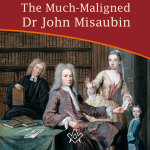 The Much-Maligned Dr John Misaubin The reputation of the Huguenot Freemason, has been buffeted by waves of criticism for the best part of three hundred years. |
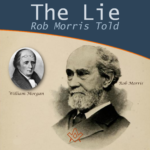 Was William Morgan really murdered by Masons in 1826? And what was the lie Masonic author Rob Morris told? Find out more in the intriguing story of 'The Morgan Affair'. |
 Lived Respected - Died Regretted Lived Respected - Died Regretted: a tribute to HRH The Prince Philip, Duke of Edinburgh |
 Who was Moses Jacob Ezekiel, a Freemason, American Civil War Soldier, renowned sculptor ? |
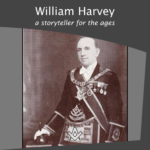 A Masonic author and Provincial Grand Master of Forfarshire in Scotland |
 Who was Philip, Duke of Wharton and was he Freemasonry’s Loose Cannon Ball ? |
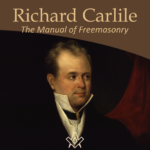 Richard Carlile - The Manual of Freemasonry Will the real author behind The Manual of Freemasonry please stand up! |
 Nicholas Hawksmoor – the ‘Devil’s Architect’ Nicholas Hawksmoor was one of the 18th century’s most prolific architects |
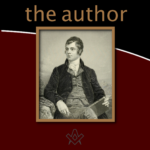 By Bro. Anthony Oneal Haye (1838-1877), Past Poet Laureate, Lodge Canongate Kilwinning No. 2, Edinburgh. |
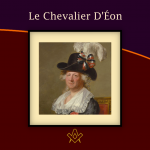 The Curious Case of the Chevalier d’Éon A cross-dressing author, diplomat, soldier and spy, the Le Chevalier D'Éon, a man who passed as a woman, became a legend in his own lifetime. |
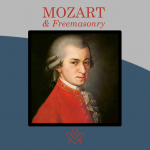 Mozart Freemasonry and The Magic Flute. Rev'd Dr Peter Mullen provides a historical view on the interesting topics |
masonic knowledge
to be a better citizen of the world
share the square with two brothers

click image to open email app on mobile device


